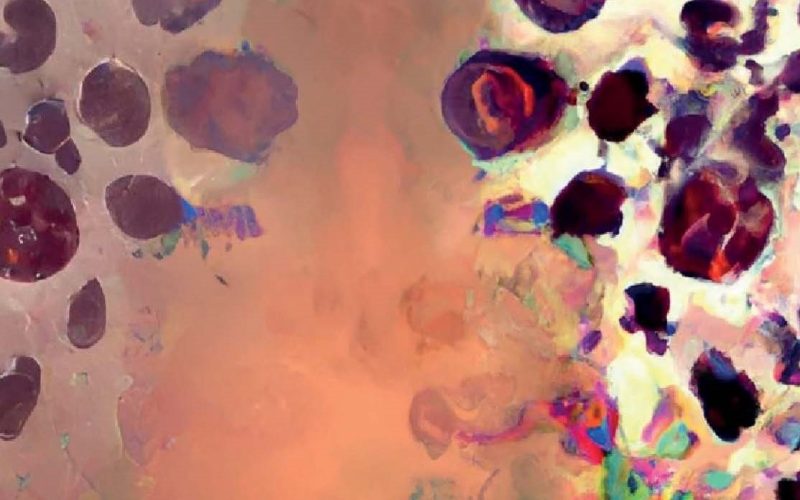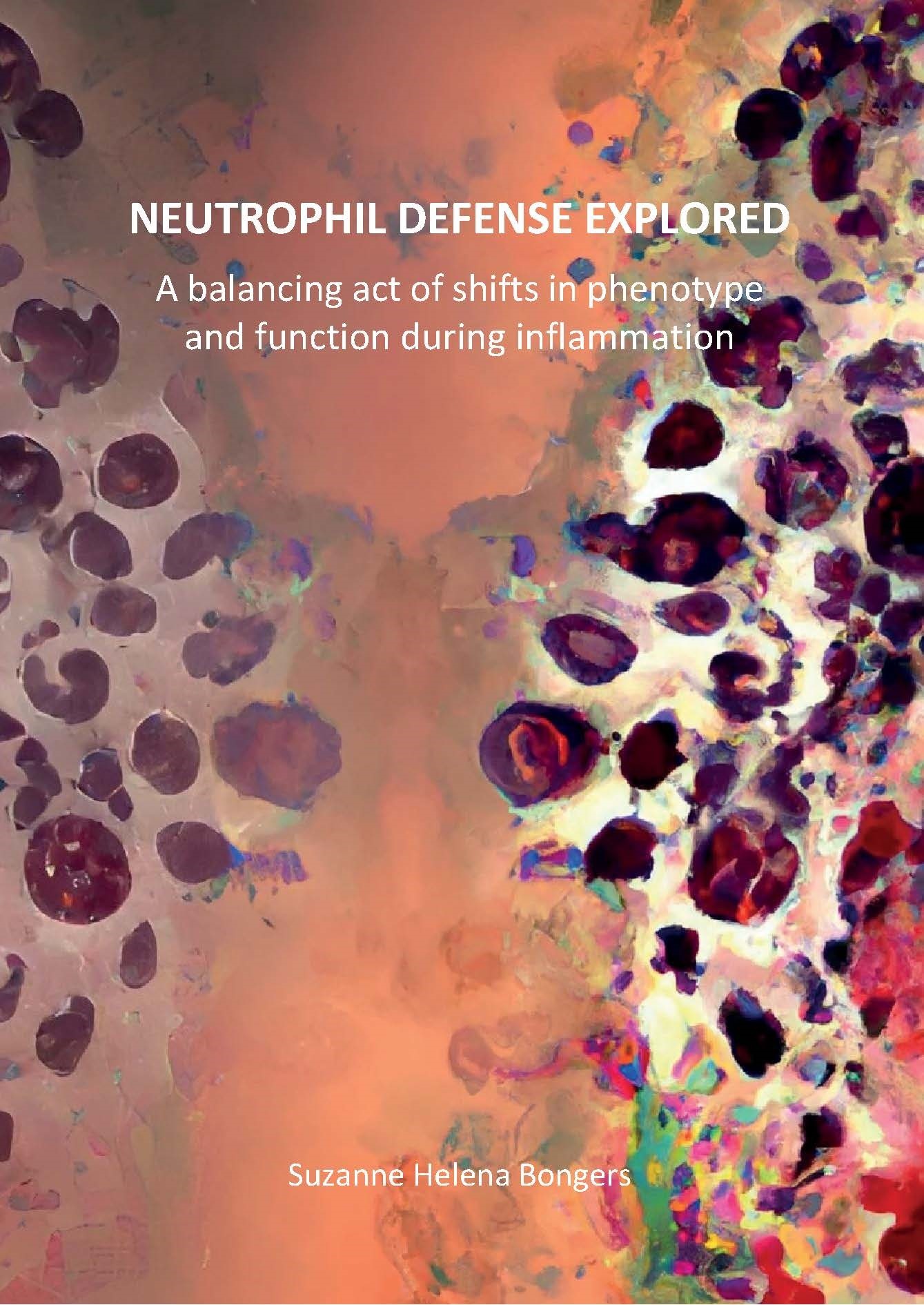PhD research by Suus Bongers, MD (UMC Utrecht) indicates that the circulating neutrophil pool undergoes rapid changes following an inflammatory stimulus. Initially, there is an increase of CD16 neutrophils (strong bacterial killing ability), followed by a shift to CD62L neutrophils (lower antibacterial ability, but more regulatory function). However, there are also more subtle changes such as a decrease in expression of CD10. The slow normalization of CD10 after an inflammatory insult might be a suitable biomarker to monitor resolution of inflammation.
Neutrophils are widely acknowledged as the most abundant cell type of circulating leukocytes. With a prevalence of 2.5-7.5 million cells per liter blood (~60 percent of all leukocytes), neutrophils are unmistakably superior in numbers. They are essential defenders against infections, but not all neutrophils function alike. The PhD thesis by Suus Bongers, MD (Department of Trauma Surgery and Center for Translational Immunology, UMC Utrecht) reveals that distinct neutrophil subsets vary in both appearance and function and they appear in blood during different stages of inflammation, such as during the acute and sub-acute phases after severe trauma, endotoxemia, and COVID-19.
Critically ill patients often undergo extra inflammatory insults such as surgery, open wounds that can become infected and they are treated with invasive devices such as ventilators or drains. These factors contribute to a higher infection risk due to their invasive nature, but they also may cause additional ‘inflammatory hits’ and a disbalance of the immune response. Suus Bongers found that during the acute inflammatory phase (the first hours after traumatic injury), a subset called CD16dim (or banded) neutrophils predominates, showing a strong bacterial killing ability. In contrast, during the sub-acute phase (days to weeks after trauma), CD62Ldim (or hyper-segmented) neutrophils become more common. The latter have a lower capacity to kill bacteria, which suggests that while CD16dim neutrophils primarily serve an antibacterial role, CD62Ldim cells may have a more regulatory function. The downside is that the impaired bacterial killing capacity of the CD62Ldim cells may allow them to act as ‘Trojan horses’, harboring intracellular bacteria and potentially increasing infection risk in vulnerable patients.
In addition to the functional differences, biomarkers on the surface of neutrophils such as CD10 and CD64 also provide insight into the inflammatory state. Bongers and co-workers showed that low CD10 levels during inflammation – and its gradual return to baseline – could serve as a biomarker for recovery. Finally, the diagnostic potential of neutrophil CD64 using automated flow cytometry was explored for its role in identifying bacterial infections rapidly in emergency settings. This biomarker appears to have a high specificity and positive predictive value for diagnosing a bacterial infection. However, a low CD64 cannot rule out a bacterial infection. For future purposes, neutrophil CD64 should be combined with additional tests to form an algorithm that adequately diagnoses infectious diseases.
“These results offer promising avenues for refining diagnostics and treatment strategies, which could ultimately improve infection management and patient outcomes for critically ill patients.”
Susan Bongers concluded: “The findings in my PhD research enhance our understanding of neutrophil dynamics and functions during inflammation. These results offer promising avenues for refining diagnostics and treatment strategies, which could ultimately improve infection management and patient outcomes for critically ill patients.”
Suus Bongers, MD (1992, Vleuten de Meern) defended her PhD thesis on May 7, 2025 at Utrecht University. The title of her thesis was “Neutrophil Defense Explored – A balancing act of shifts in phenotype and function during inflammation”. Supervisors were em. prof. Loek Leenen, MD, PhD (Department of Trauma Surgery, UMC Utrecht) and prof. Leo Koenderman, PhD (Department of Experimental Pulmonology and Center for Translational Immunology, UMC Utrecht). Co-supervisors were Falco Hietbrink, MD, PhD (Department of Trauma Surgery, UMC Utrecht) and Nienke Vrisekoop, PhD (Center for Translational Immunology, UMC Utrecht). Suus Bongers works as a physician (‘ANIOS’) in complex and forensic psychiatry at Fivoor in Den Dolder.
Previous articles on this subject

